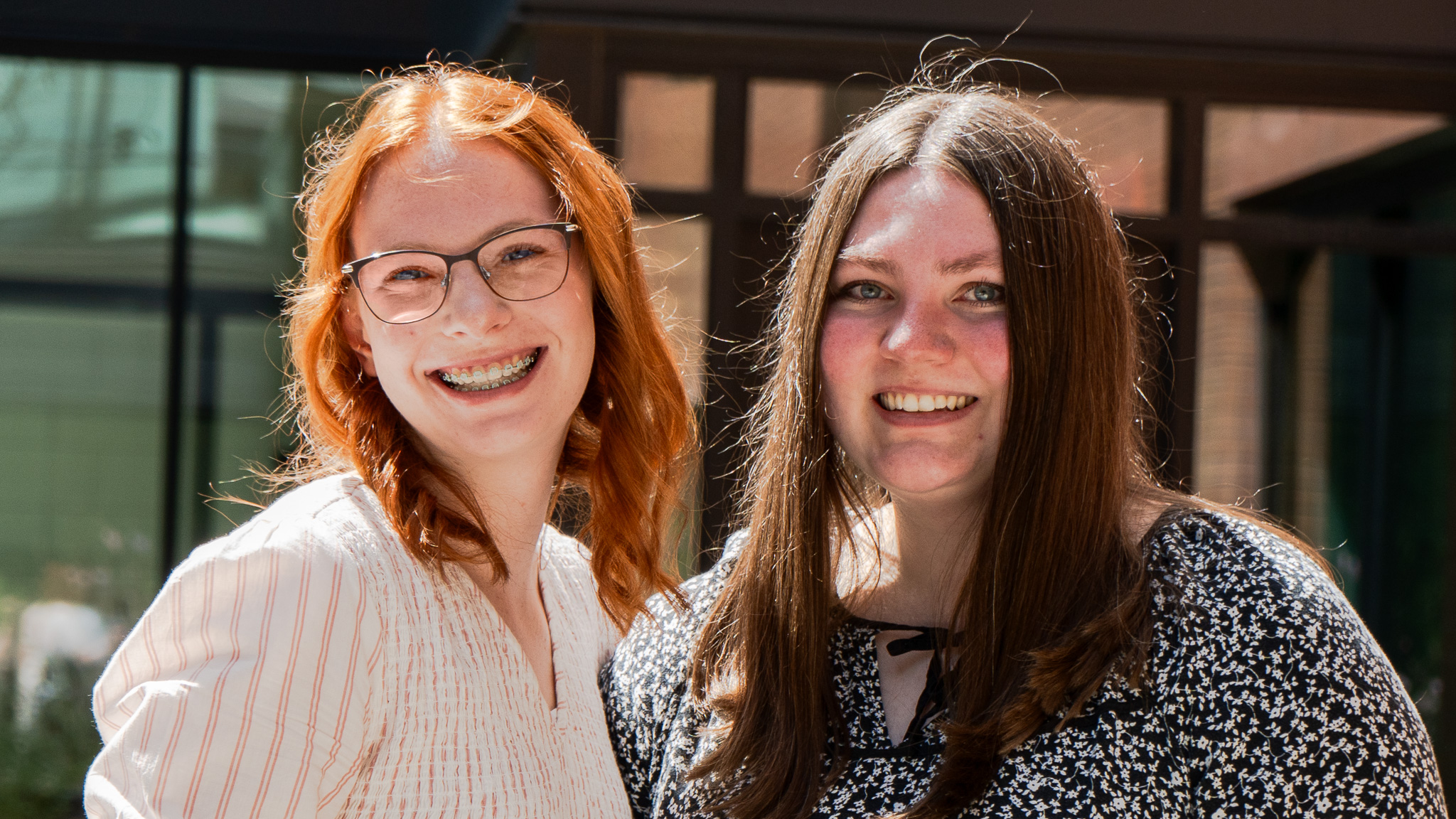Undergrad Research Highlights Mental Health Services Gap

Lindy Strand and Abby Julian are both juniors.
Two undergraduate researchers, mentored at the Institute for Disability Research, Policy, and Practice, presented their award-winning and eye-opening work to understand a sobering gap in mental health resources during Research Week at Utah State University.
Abby Julian and Lindy Strand received the Undergraduate Oral Presentation award in the Social Services and Education category. Their presentation, “We Are In A Complete Crisis: Navigating The Lack of Resources To Mental Health Care For Individuals With Intellectual/Developmental Disabilities (IDD),” outlined a qualitative analysis of an open-ended question: “What challenges, if any, have you experienced with getting mental health services for your family member with IDD?”
Julian and Strand are mentored by Heather Kelly, Ph.D and Ty B. Aller, PhD, LMFT. Both mentors are IDRPP researchers, and the students’ work was on the Mental Health and Intellectual/Developmental Disabilities Project. They analyzed 208 responses to the question, cataloging challenges to finding resources, waiting for years on waitlists to access them, and finding transportation.
Their background research revealed that 56 percent of individuals with intellectual/developmental disabilities also have mental health conditions, said Julian. They heard different variations on, “We’re having a hard time getting a provider that understands the interplay between IDD and mental health.”
Communication was also a challenge, Strand said. A lot of providers don’t know how to adapt communication to make it more accessible. For example, a therapist who relies on talk therapy may not know how to use accommodations to respond to a client who doesn’t speak.
Rural respondents also pointed out the lack of services close to home. “Therapists who are comfortable working with people with significant disabilities are rare,” one respondent said. “In rural Utah it is almost impossible.” Others pointed to a lack of transportation, or the difficulty of traveling for someone with disabilities.
“The amount of responses and the passion that you could hear in the responses… they want to get help but there are a lot of barriers,” said Strand.
The students’ USU presentation was not their first. They also attended the Utah Counsel on Family Relations Conference at Brigham Young University earlier in the month, where they presented on the whole data set. Both said it was great to work with Kelley and Aller.
Julian and Strand are both juniors in Human Development and Family Studies. They agreed that while they may not choose full-time careers in research, their work has changed how they think about their field. Lindy said she has learned to have an open mind. “I’ve seen a different perspective,” Strand said.
“It’s kind of started me asking more questions and thinking what could be researched,” Julian said.

